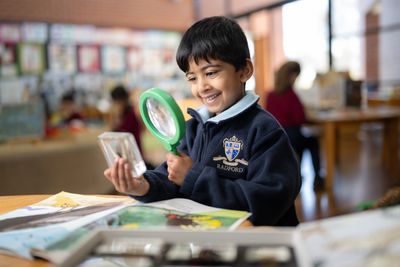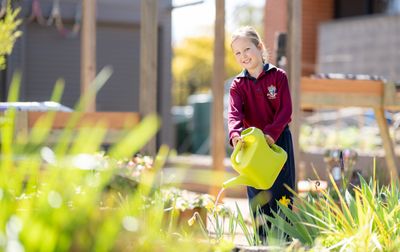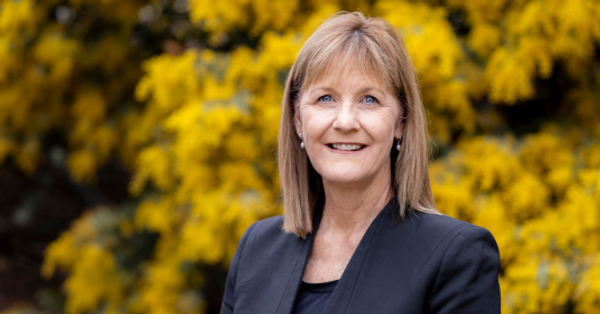Wondering about learning
By Ms Karen Mahar, Acting Deputy Principal, Head of Junior School
As our Year 12 students approach their final exams and enter their final weeks at Radford College, I have been meeting families enrolling their children for Pre-Kindergarten in 2026.
It seems quite a remarkable juxtaposition – standing at both ends of the Radford College learning journey. It has prompted me to reflect on the beautiful continuum that connects our youngest and oldest learners, and the educators who guide them throughout their journey.
The foundations for our Year 12 students’ success were laid long before these final moments – through strong partnerships built between the home and school, with parents and caregivers a child’s first educators. It is in the early years that curiosity takes root and the foundations for learning are laid.
Our Pre-Kindergarten learners are seen as capable, confident and curious, beginning to view themselves as active participants in their own learning journeys.

The belief that children are not empty vessels to be filled, but extraordinary learners in their own right, sits at the heart of the Reggio philosophy – and indeed Radford’s approach to learning. It also calls for extraordinary educators – those who are curious, capable and continually learning themselves.
Even the language of education reminds us of this. The word education comes from the Latin educare, meaning ‘to bring forth’ or ‘to lead out’, while assessment originates from assidere, meaning ‘to sit beside’. The word learn stems from the old English leornian, meaning ‘to acquire knowledge, to study, to think about’. Its older Germanic roots relate to ‘following a track’, suggesting that learning is an ongoing journey – a process of discovery and growth rather than reaching a fixed destination.
The etymology of these words reflects our shared commitment to walking alongside children – guiding and learning with them, rather than simply teaching at them. Our educators do not just teach content; they co-construct knowledge. They listen, provoke thinking, nurture curiosity and wonder, and invite challenge and growth.
This approach, so evident in our Early Learning Centre (ELC) and the Primary Years Programme (PYP) in the Junior School, builds a continuity of learning that is both deep and lasting, extending through to our Secondary School and into life beyond school.
Educators notice the distance travelled by their learners. They pay attention to the rich journey of each individual, recognising that every learner’s pace and pathway are different, and they make thoughtful, informed judgements about progress over time.

Last weekend, Radford proudly hosted a Reggio Emilia-informed conference at the ELC, where educators from across Canberra gathered to reflect on the Intersections between the Reggio Emilia Approach and the Australian Early Years. The session began with the metaphor of the rhizome (a stem that grows sideways underground and sends up new shoots and roots along its length) – a reminder that education takes time. Like roots growing beneath the surface, learning can sometimes appear messy and unformed. It often develops unseen before it flowers or blooms. It calls us to slow down, pay attention and value the process as much as the product (the flower).
Grounded in the principles of Being, Belonging and Becoming from Australia’s Early Years Learning Framework (EYLF), I am reminded that this cycle applies not only to our youngest learners but equally to our teenagers and our Year 12s preparing to step into the world. Sometimes the order shifts and we may find ourselves Becoming, Being or Belonging at different stages – but the journey of growth remains constant.
As we celebrate World Educators' Day, we pause to recognise that teaching is not just a profession; it is a vocation. Our educators bring expertise, experience and invest both their hearts and countless hours into shaping lives. Our educators meet the ever-changing demands of education with creativity, compassion and a commitment to continuous improvement.
In the words of Loris Malaguzzi, founder of the Reggio Emilia approach, the 100 Languages:
'No way. The hundred is there'.
This is a powerful reminder that children – and the adults who teach them – hold 100 languages of learning, expression and possibility.
This week, we celebrate our vibrant learning community and the extraordinary individuals who make learning visible every day. We celebrate those who model what it means to be lifelong learners themselves.
To all our educators – thank you for the heart, the wisdom, the wonder and curiosity you bring to Radford.
